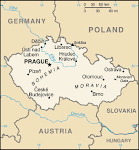
Several reports have shown up on Georgian news sites concerning the possibility of Russia constructing walls around Abkhazia and South Ossetia. InterPressNews and The Georgian Times both speculated that the building of the walls would aim to prevent the local populations and stationed Russian soldiers from fleeing to Georgian territory. Three days later, Mikheil Saakashvili stated at Parliament that Russia was planning to build a wall in Abkhazia.
The reports coincide with the recent case of Junior Sgt. Aleksandr Glukhov, who fled the Russian-occupied Tskhinvali region and sought asylum in Georgia. While predominantly Russian news agencies maintain that the 21- year-old Russian conscript was subjected to psychological pressure or threats, the international case has largely fallen quiet.
Meanwhile, Russia’s Foreign Ministry has stated that it is unaware of any plans for the construction of a fence on South Ossetia’s border with Georgia. However, the ministry also said that the government of South Ossetia would have the right to erect an infrastructure on its border with adjacent states for national security reasons. Russian statements on the creation of a wall on the Abkhazian border with Georgia remain nonexistent for the time being.
The assertions on the Russian side evoke the same made by East German officials in 1961. That year, GDR Chairman Walter Ulbricht categorically stated in an international press conference that “No one has the intention of erecting a wall!” Two months later, a wall was constructed separating East Germany from West Germany for more than a quarter-century. November 9th of this year marks the 20th anniversary of the fall of the Berlin Wall. Lamentable though it may be, but it appears that its anniversary might signal the beginning of a new Wall in Georgia for years to come.
























